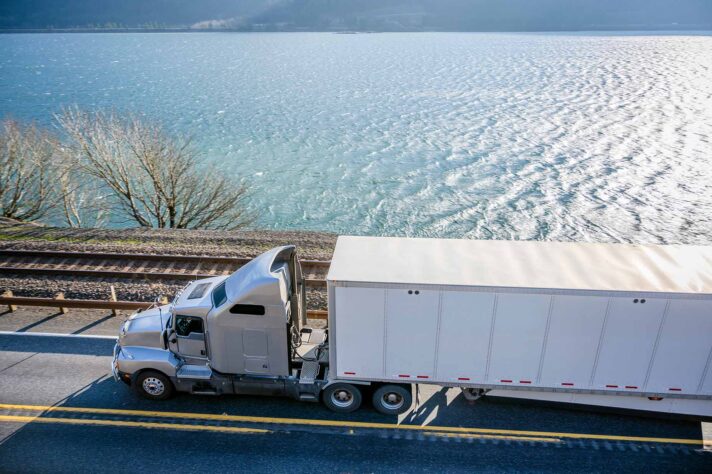Leaving your home behind can be a tough decision to make, but sometimes it’s a necessary one. However, the thought of packing up and relocating can be overwhelming, especially when it comes to moving far away from family – so we decided to make a guide that will make the whole process easier. Read on because we will equip you with the knowledge and tools necessary to make your relocation as smooth as possible.
Organizing a move far away from family can seem daunting - but we will make this process less so
Is Moving Far Away From Family a Good Decision?
There are both advantages and disadvantages to consider before you start planning a relocation to another city – and whether you should do it or not depends on your personal needs and preferences. On the one hand, this change can provide you with a sense of independence, freedom, and the opportunity to explore new cultures and experiences. It can also enable you to seek career opportunities and allow you to pursue your personal goals.
In the end, after relocating to a new city alone, you’re bound to develop problem-solving and decision-making skills that will make you more self-sufficient. On the other hand, it can be emotionally challenging to leave loved ones behind and adapt to a new environment. It can also make it difficult to maintain close relationships with family members and miss out on important family events.
Additionally, practical challenges such as finding a new place to live and meeting new people in a whole new environment can be daunting. Therefore, before organizing a relocation, ensure you weigh the pros and cons and consider the positive and negative impacts it can have on your life.
What Should Consider Before Relocating Away From Family?
Deciding to move away from family is not easy, and it’s important to consider several factors before you finally start your relocation day preparations and go through with it. Here are some things to keep in mind:
- Job opportunities – one of the primary relocation reasons is better job opportunities. However, before the relocation day comes, you need to research the job market in the chosen location and make sure there are enough opportunities in your field of work.
- Cost of living – use websites such as Numbeo to research the cost of living in the new area and compare it to your current living expenses to ensure that you can afford a life in a new city.
- Housing – research the housing market in the new area and consider factors such as proximity to work or school, safety, and the cost of renting or buying.
- Quality of life – some other things to consider when relocating to a new state are the climate, outdoor activities, cultural attractions, and the overall lifestyle of the new area. These factors will help you determine if it is a good fit for you.
- Family and social support – think about how you will maintain relationships with loved ones and whether you will be able to establish a new support system in the new location.
- Education – if you plan to relocate with kids, researching the quality of schools in the new area is essential.
How to Have Open and Honest Conversations With Family Members About the Decision?
During the conversation, explain your reasons for relocating to a new home far away and be honest about your decision. This type of relocation can be emotionally challenging for everyone involved. It’s essential to acknowledge the impact that your decision will have on your family members and express empathy for their feelings. Allow your family members to express their concerns and feelings about your decision.
Listen carefully to their perspective and be understanding of their point of view. Offer reassurance that your relationship with your family members will not be affected. In the end, be open to compromise if your loved ones are struggling with your decision. You could schedule regular visits or plan family vacations. The key is to be honest, and considerate and communicate clearly.
Being transparent can help your family members understand your decision better
How to Start Preparing for the Move?
First of all, you should make a to-do list of all the tasks you need to complete before the relocation day comes, such as packing, decluttering, and forwarding your mail. Then, you should prioritize them and start tackling them one at a time.
To avoid having to deal with the last-minute relocation, it’s important you start with your preparations as soon as possible – at least a few weeks before the scheduled move-out date.
Create a Budget and Start Saving Money
You should start by calculating the cost of relocating, including transportation, long-distance moving services, packing supplies, living expenses in a new city, and any other fees. Once you have an estimate, you can start setting a budget for your relocation.
Next, start cutting back on unnecessary expenses. This could mean reducing the number of times you eat out, canceling subscriptions or memberships that you don’t use, or finding other ways to save. Additionally, consider selling items you don’t want to keep when relocating. Finally, set up a savings plan and stick to it.
If you need more advice on how to save money quickly, don’t miss watching the video below:
Start Looking for the Place to Call Home
Before anything else, determine your housing needs. This includes the number of bedrooms, bathrooms, and square footage you need, as well as the location, neighborhood type, and any specific features or amenities you require. You should also research the housing market in the new area.
This includes the average cost of rent or mortgage payments, as well as any other fees or expenses associated with renting or buying a home. If possible, it is always a good idea to visit the new destination before you relocate to get a feel for the neighborhoods and the types of homes available. This will help you narrow down your search and find the perfect place to call home.
If possible, attend open houses or schedule viewings to see houses or apartments in person
How to Find the Right Cross-Country Moving Company to Make Your Move Easy?
When moving cross-country, finding the right long-distance moving company is essential to ensure a smooth and stress-free transition. However, if you plan on hiring cross-country movers, there are some things that must be on your relocation checklist. Before finally choosing a relocation company, you should:
- Research and compare different cross-country moving services to find one that suits your needs and budget,
- Check the company’s licensing and insurance to ensure it is a legitimate business and protect yourself from relocation scams,
- Read reviews from previous customers to get an idea of the company’s reputation and customer service,
- Get estimates from several companies to compare prices and services,
- Ask long-distance movers to provide a breakdown of all costs so you know exactly what you’re paying for,
- Read the contract carefully and ask questions about anything you don’t understand.
Consider Using a Few Cross-Country Moving Services
If you wish to relocate efficiently and with complete peace of mind, you should consider getting as much professional help as you can. When you decide to work with reliable relocation experts, such as Cross Country Moving Company, the best course of action is to get more than just basic cross-country moving service – if you’re able to afford it.
For example, you should consider getting packing services and hiring professional packers to help you pack your belongings safely and quickly. If you’re downsizing or need extra storage space, ask the company’s representatives about possible storage services. In the end, if you deem a long drive to your new location unsafe, you should also think about using an auto transport service and shipping your car cross-country without a worry on your mind.
When choosing which services to use, it’s important to consider your needs and your budget – and, of course, hire reputable and experienced professionals who are able to deliver them flawlessly.
Should You Make a List of New Apartment Essentials?
Making a list of things you need for your first apartment is a great idea to help you prepare for your relocation and ensure that you have everything you need for your new home. Here are some relocation essentials you should bring or buy once you relocate:
- Furniture and bedding – bed, couch, dining table and chairs, storage units,
- Kitchen supplies – pots and pans, utensils, plates, glasses, and cooking appliances like a toaster and microwave,
- Bathroom supplies – towels, shower curtains, toilet paper, and cleaning supplies,
- Decor and lighting – curtains, rugs, lamps, wall art,
- Personal items – toiletries, clothing hangers, and electronics chargers.
Having a list of new apartment essentials can help you stay organized. Additionally, it can help you budget for your relocation and avoid overspending on unnecessary items.
How to Stay Connected With Family After the Move?
After relocating away from family, it’s crucial to maintain relationships with loved ones despite the distance. Technology has made it easier than ever to stay in touch with family members.
More than half of the American population lives close to at least one family member - others need to find a way to beat the distance.
Video chats, phone calls, and social media are great ways to keep up with each other’s lives and stay connected. Making an effort to reach out regularly, even for just a quick catch-up, can help keep relationships strong.
Planning visits and vacations is another great way to stay connected with your loved ones. Make an effort to visit each other regularly, whether it’s for special occasions like birthdays and holidays or just to spend time together.
How to Cope With Homesickness?
Homesickness is a common experience for anyone who has moved far away from home. It can be a difficult and overwhelming feeling, but there are ways to cope with and manage it. One way to cope with homesickness is to stay connected with loved ones and simultaneously explore your new surroundings. Take the time to get to know your new community and find things that you enjoy doing.
Finally, it’s important to give yourself time to adjust. Relocating to a new place can be a major life change, and it’s normal to feel homesick and overwhelmed. It’s okay to miss home but remember that you’re also embarking on a new adventure and have the opportunity to create new memories and experiences.
Finding ways to immerse yourself in your new surroundings can help you feel more at home
Embrace the New Adventure With the Help of Trustworthy Professionals
With careful planning, support, and a positive mindset, you can successfully navigate a move far away from family and embrace the new chapter that awaits. On the other hand, by enlisting the help of reliable professionals, such as Cross Country Moving Company, you can alleviate some of the stress and logistical challenges of the relocation. So why not make your relocation easier? Contact us as soon as possible and book your move on time.
FAQ
Why Do People Move Far Away From Family?
There are many reasons why people relocate far away from their families. Some may do it for job opportunities, education, or simply to start a new life. Others may have strained relationships with their families and feel the need to distance themselves. Additionally, some people may want to explore different cultures or seek adventure by living in new and unfamiliar places.
What Are the Benefits of Moving Far Away From Family?
Organizing this type of relocation can have many relocation benefits. For example, it can provide a sense of independence and freedom to explore new opportunities without being tied to obligations. It can also offer the chance to become more self-reliant, experience new cultures, meet new people, make friends in a new state, and broaden one’s perspective on life.
What Are the Challenges of Moving Far Away From Family?
One of the biggest challenges is the emotional impact of leaving loved ones behind. Additionally, it can be difficult to adjust to a new environment, make new friends, and build a support system from scratch.
How Do I Decide if Moving Far Away From Family Is Right for Me?
This decision depends on individual circumstances. If you think about relocating to a new city, it’s important to consider factors such as career opportunities, personal goals, family relationships, and financial stability when considering if it’s a good choice for you.
How Do I Prepare for a Move Far Away From Family?
Preparing for a relocation far away from home requires careful planning. It’s important to research the new location, explore job opportunities, and find suitable housing.
Additionally, creating a relocation budget and developing a plan for shipping belongings can help ease the stress of the relocation. Finally, seeking emotional support from loved ones can be helpful in managing the emotional impact of this transition.
How Do I Stay Connected With Family After Moving Far Away?
Staying connected with loved ones after relocating to a new state requires effort and commitment. Regular communication through phone calls, video chats, or social media can help maintain relationships. Additionally, scheduling visits or planning vacations can provide opportunities for quality time with loved ones.
How Do I Make New Friends and Build a Support System in a New Location?
It’s important to be open to new experiences, join social groups or clubs, and participate in community activities. In addition, note that reaching out to coworkers or classmates and attending networking events can help build connections.
How Do I Cope With Homesickness After Moving Far Away?
It’s important to acknowledge and accept these feelings while also finding ways to manage them. Staying connected with loved ones, finding new hobbies or interests, and exploring the new location can help ease homesickness.
How Often Should I Plan to Visit Family After Moving Far Away?
The frequency of home visits depends on individual circumstances. Factors such as distance, finances, and work schedules can impact how often visits can be made. It’s important to communicate with loved ones to determine a schedule that works for everyone.
How Do I Handle Family Members Who Are Upset About My Decision to Move Far Away?
Handling family members who are upset about a decision to relocate far away requires empathy and understanding. It’s important to listen to their concerns and provide reassurance that the relationship will not be affected.
What Are Some Tips for Adjusting to a New Location After Moving Far Away?
It’s important to explore your new location as much as possible, find new hobbies or interests, and connect with people through social groups or clubs. Additionally, establishing a routine, maintaining a healthy lifestyle, and setting realistic expectations can help individuals feel more comfortable in their new environment.
How Do I Deal With the Practicalities of Moving Far Away, Like Shipping Belongings and Finding a New Place to Live?
It’s important to research and compare different cross-country moving companies and find one that suits your individual needs and budget. Additionally, exploring different neighborhoods and considering factors such as safety, proximity to work or school, and cost of living can help you find a suitable place to live.
What Are Some Common Mistakes People Make When Moving Far Away From Family, and How Can I Avoid Them?
Some common relocation mistakes people make include underestimating the emotional impact of the change, not budgeting enough for unexpected expenses, and failing to establish a support system in the new location.
How Do I Know If I'm Ready to Make the Move Far Away From My Family?
It’s important to consider factors such as personal goals, career opportunities, financial stability, and family relationships when making the decision. Additionally, seeking advice from trusted friends, family members, or a professional can be helpful, as well.
What Are Some Resources Available to Help Me With the Process of Moving Far Away From My Family?
Online forums and support groups can provide a platform for individuals to connect with others who have gone through similar experiences. Government websites, such as FMCSA, can also provide information on relocation regulations and requirements. Finally, don’t forget that loved ones can provide emotional guidance during the relocation process.











